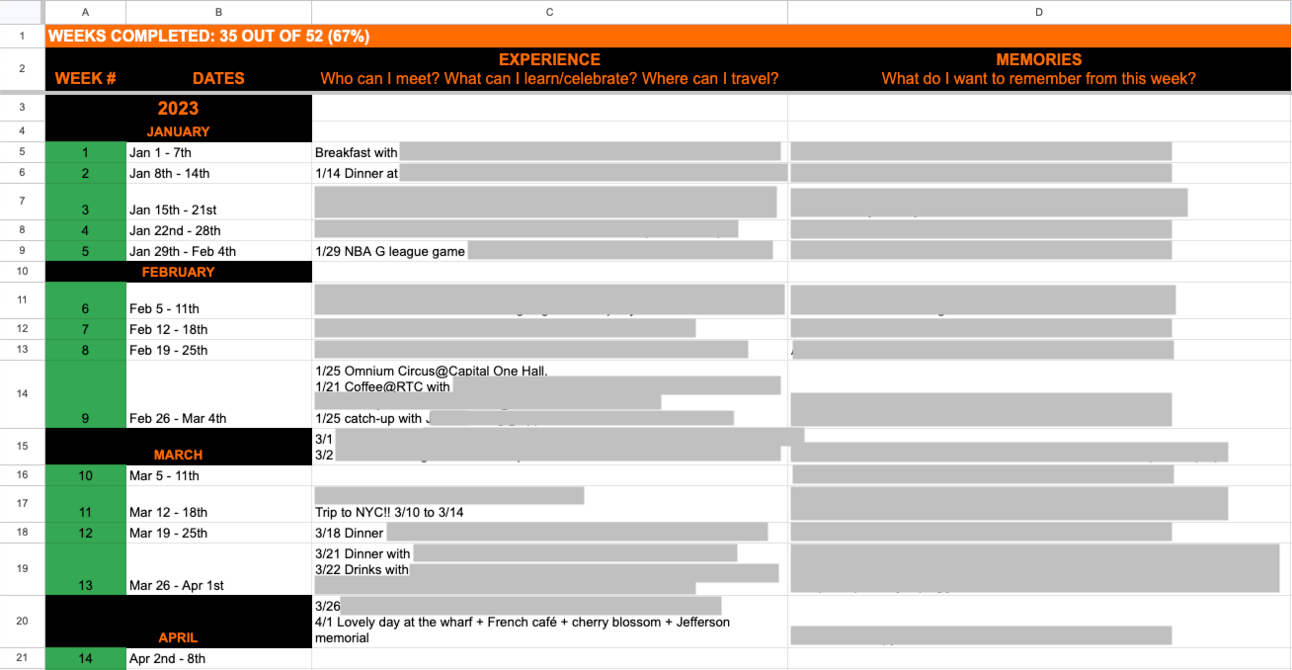Planning more experiences (2024 version)
A visual planning method to increase your experiences and joyful memories
This method to plan more life experiences and savor them has been a game changer for me, and was one of my most popular posts of 2023. In case it helps you with your 2024 planning, I’m re-sharing the post below with an updated 2024 template you can use.
If you’d like to have more life experiences, but find life rushing by you instead, then this visual planning method might help you change this. It has worked well for me to intentionally plan more experiences and savor them.
Firstly, why optimize your life for experiences? Because research shows that prioritizing experiences over material goods leads to higher levels of happiness and satisfaction. For example, this research paper found that “spending on doing promotes greater happiness that spending on having”. Experiences create more joyful and lasting memories than things.
What has worked well for me is creating an online spreadsheet with fifty-two rows (one for each week of the year) and two columns (“Experiences” and “Memories”). I use this spreadsheet each week to do two things:
1. document my planned experiences, and
2. add my memories from recent experiences
You can find the template here.
At the end of each week, you can mark its completion at the top of the spreadsheet. For example, by April 7th, 14 out of 52 weeks (29%) of the year are over. This can give you a sense of urgency (my older one only has ten summers left before going off to college).
Some insights I gleaned from doing this exercise:
A blank page is powerful: Looking at the blank sheets compels me to add a few planned experiences. I don’t want to end the year with a sparse sheet, even with the demands of work, home, family, kids, and travel.
Keeping it brief makes it easier: After each week passes, I write at least one sentence about it in that row. If I didn’t do much during that week, I don’t beat myself up - I write at least one takeaway.
Regular reviews create positive reinforcement: As the weeks pass, I can look back and review my experiences, memories and upcoming plans. This gives me the motivation to add new experiences in the future, creating a flywheel of positive reinforcement.
I typically focus on non-routine activities, such as meeting people that I don’t often see, organizing trips/celebrations, attending shows/sporting events, and signing up for learning opportunities.
As Cesare Pavese said, "We do not remember days, we remember moments".
I hope that this method helps you add more meaningful experiences to your life. Doing this for a few years has resulted in a rich trove of joyful memories.


